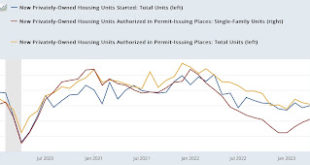Recently, Robert Lucas, who was called an economist, died. This is not about him, but about his kind of economics as tweets and obituaries show that it is not yet generally understood what kind of science the neoclassical macro-economist like him produced. Their most egregious failure: after decades of work, they do not even have a shimmer of anything which could pass for a neoclassical way to estimate the macro economy, even when their ideas are squarely at odds with the macro economy...
Read More »Why nuclear power won’t work in Australia — yet another explainer
My latest piece in Independent Australia over the fold OPPOSITION LEADER Peter Dutton’s call for nuclear power, made as part of his Budget reply speech, should not be taken too seriously. In its nine years in office, the L-NP took no steps to promote nuclear energy, not even an attempt to repeal the largely symbolic ban imposed by John Howard in 1998. Dutton’s renewed call can best be understood as a dog whistle to the climate denialists who dominate the party’s base,...
Read More »A Fed nightmare? Housing permits and starts confirm improvement from bottom, multi-unit construction sets new record high
A Fed nightmare? Housing permits and starts confirm improvement from bottom, multi-unit construction sets new record high – by New Deal democrat Housing construction is perhaps the single most important method by which the Fed seeks to translate its interest rate policy into effects on the economy. To be blunt, the Fed’s sledgehammer attempt via one of the most aggressive rate hike campaigns in its history appears to be on the verge of...
Read More »Decolonization: a necessary first step
from Asad Zaman This is part 3 of a talk on Current Economic Crisis in Pakistan and Solutions, from an Islamic Perspective. A summary of the first two parts is given below. This third part explains that colonization requires the assent of the colonized, which is achieved by an educational system which teaches the inherent superiority of the colonizers, and the inferiority of the colonized. To solve the problems created by colonial institutions meant for extraction of resources, we must...
Read More »Five minutes of sunshine
The Albanese government has quietly abandoned full employment. Looking back over the past four weeks, I’ve turned out ten opinion pieces criticising the Albanese government. This piece, from Inside Story, should be the last for a while. I haven’t covered everything they’ve done wrong, but I think I’ve written enough on the topic for now. Share this:Like this:Like Loading...
Read More »Open Thread May 16, 2023
Dan’s Open Thread May 10, 2023 – Angry Bear (angrybearblog.com) Tags: open thread
Read More »The deadly sin of statistical reification
from Lars Syll People sometimes speak as if random variables “behave” in a certain way, as if they have a life of their own. Thus “X is normally distributed”, “W follows a gamma”, “The underlying distribution behind y is binomial”, and so on. To behave is to act, to be caused, to react. Somehow, it is thought, these distributions are causes. This is the Deadly Sin of Reification, perhaps caused by the beauty of the mathematics where, due to some mental abstraction, the equations undergo...
Read More »What I’ve been doing and saying
Mainly, expressing my disappointment in the Albanese government Share this:Like this:Like Loading...
Read More »Yes, Environment Minister Tanya Plibersek approved a coal mine.
But save the angst for decisions that matter more My latest piece in The Conversation looks at Tanya Plibersek’s masterclass in the delivery of bad news. We were softened up with the rejection of two zombie coal mines, then distracted by the approval of a relatively unimportant mine. The real news is that the Labor government, having rejected a formal “climate trigger” for environmental approvals, intends to complete disregard the climate effects of our coal and gas exports. Share...
Read More »Reviving post-post-Fordism
I had an odd intellectual experience recently. A US high school student wrote to me as part of an assignment, asking for my thoughts on Brave New World, and its current relevance. I replied talking about the role of “Our Ford”, and Gramsci’s contemporary concept of Fordism. That got me thinking about post-Fordism, and then to the idea of post-post-Fordism, referring to the information economy that has emerged since the rise of the Internet. I expected that this would be a...
Read More » Heterodox
Heterodox



